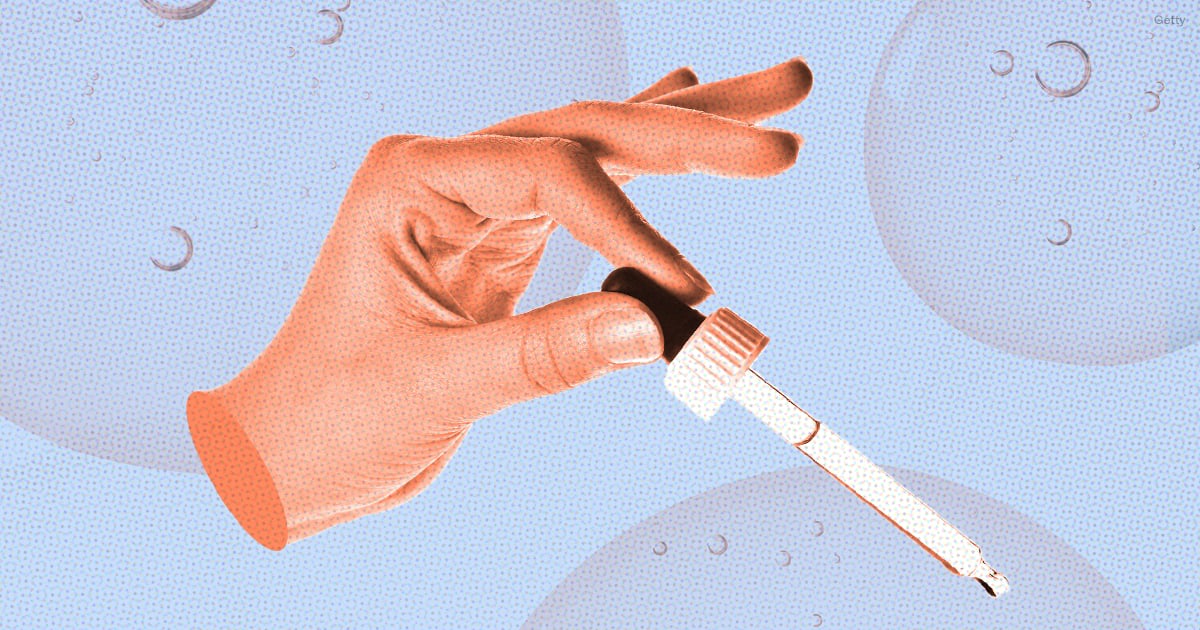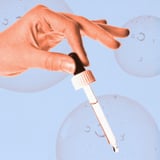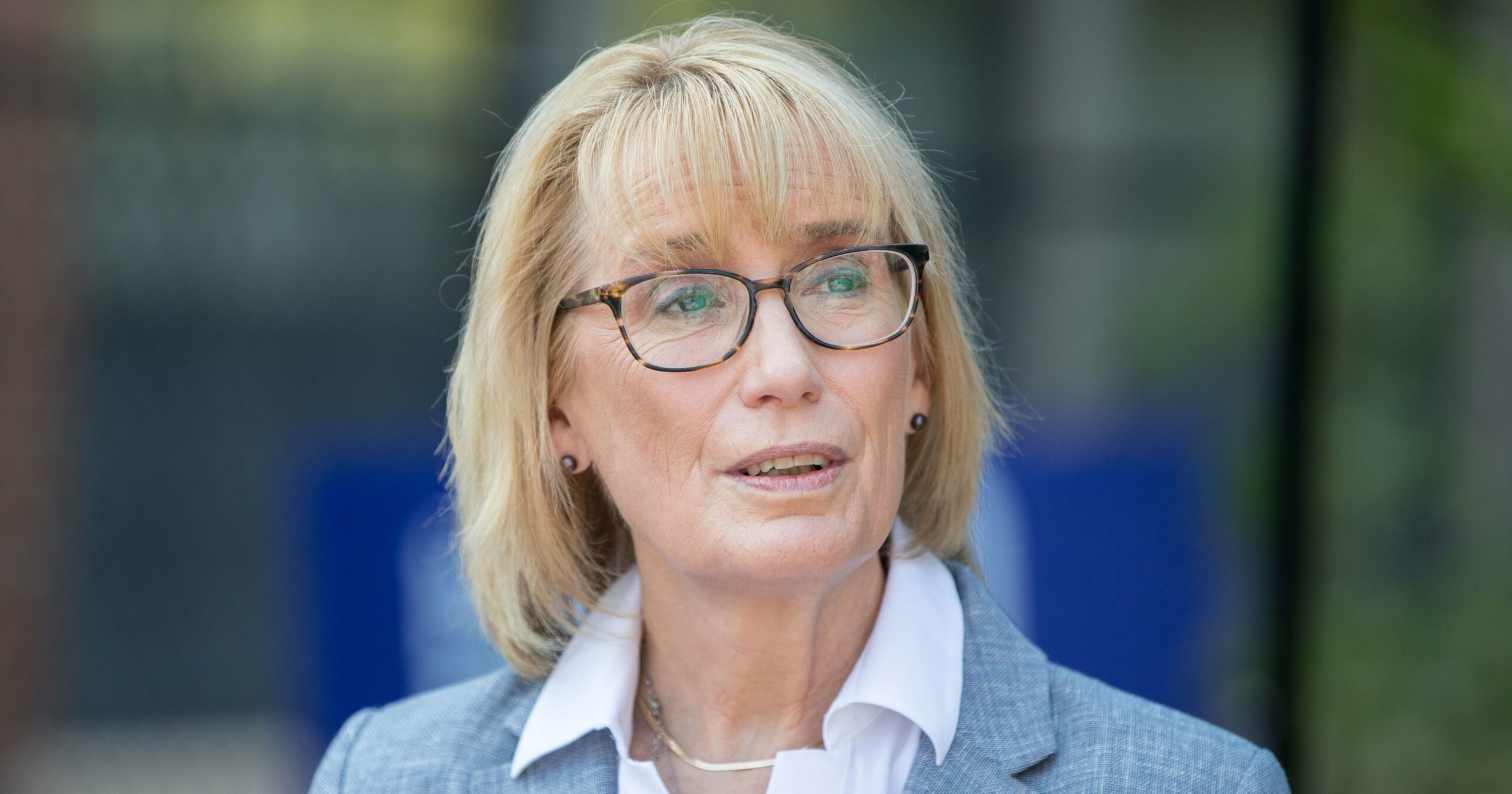My son was in pre-K when he was diagnosed with Autism Spectrum Disorder. We enrolled him in speech therapy and used holistic remedies to help calm his anxiety and assist with communication, but he still had regular outbursts. During them, he’d sometimes throw himself to the ground and bang his head and body against it. I was worried about his safety, and that’s what led me to try giving my son CBD.
As a podcaster and journalist who often reports on plant medicine, I was aware of the potential benefits of CBD, aka cannabidiol, a non-intoxicating compound found in the cannabis plant. CBD is chemically similar to THC, the psychoactive compound in cannabis, but the former doesn’t get you high. I’d heard many stories about how the plant can help children and adults with everything from autism to seizures to menstrual cramps. I’ve even used CBD and other cannabinoids for my own health issues.
But it took me a while to try it for my son. In addition to the positive stories, I’d heard of many instances where parents and caretakers are penalized for giving their children CBD. Besides the fact that I’d never want to risk custodial intervention, I was concerned about side effects or other health issues, as I’d also seen reports about some CBD products containing dangerous metals or other chemicals.
But then I came across the book “Seeing Through the Smoke” by Peter Grinspoon, MD, a primary care physician and cannabis expert (who I’ve interviewed twice for my podcast). One chapter focuses on how cannabis can improve the quality of life of autistic children. It made me think that perhaps CBD could help my son, and I began going back over the research I had done in the past.
There aren’t enough studies into the potential uses for CBD among children with ASD to definitively say that it works, or how. But there is promising evidence that it might. One small 2022 study in the journal Nature that involved 110 people with ASD, ages 5 to 25 and with an average age of 9, showed that treatment with a CBD-rich cannabis strain led to large improvements in social affect symptoms, which include things like difficulty with eye contact or starting conversations. Some preclinical research shows that CBD may affect areas of the brain associated with autism, such as the basal ganglia, which control functions such as emotional processing, per the journal Neuropsychopharmacology.
I also checked in with friends who gave their kids CBD for a variety of reasons, as well as nurses and doctors I’ve interviewed in the past. Everyone agreed it could really help with my son’s anxiety, which made me feel safe enough to give CBD a try.
I chose to experiment with Charlotte’s Web CBD oil, because the brand was originally created to help a child. Additionally, the company has a long history of providing quality products and also shares third-party lab results; I felt confident that it was safe. Realm of Caring, a nonprofit partnered with Charlotte’s Web, also offers a library of research about cannabis and CBD for newcomers to reference.
Even with everything I learned, I was hesitant at first. In all of the research I did, I found that adverse reactions were minimal, but anxiety did worsen in some cases. So for my son’s first dose, I only gave him a quarter of the suggested amount of oil. I did this at night, just in case it made him sleepy. He went to bed without incident, which was new, and slept through the night, also new. We had plans to visit a local pool the next day. When it came time to leave, he didn’t have his usual intense outburst.
Of course, I couldn’t know for sure that any of this had to do with the CBD, but the small dose I’d given him certainly didn’t seem to be having any ill effects. I felt encouraged to continue giving CBD to my son, slowly increasing the dosage over the course of two or three weeks until I reached the recommended daily amount (1 mL).
I continued to notice improvements over the next few months. The biggest change was how my son responded to transitions: leaving a fun outing, ending an activity, putting away a toy. Before taking CBD, he would get upset and have intense reactions, because he couldn’t verbalize his feelings and needs. A few months after his first dose, he was making clear declarations like “I’m mad” or “hungry,” and was more open to emotional regulation methods like a change of scenery or singing a song. He also seemed less bothered by loud noises or other disruptions, and began engaging in pretend play for the first time.
I was so heartened by the improvements, but I was still afraid about certain people finding out I give my son CBD. Even though I live in a state where adult cannabis use is legal, the local attitude isn’t largely pro plant medicine. And legally, CBD falls into a sort of gray area, especially when it comes to children.
With the passing of the 2018 Farm Bill, most states updated their hemp codes but did not change their child endangerment laws. Some CBD products contain trace amounts of THC, even those that claim to be THC-free, due to issues like mislabeling, per WebMD. And giving minors cannabis is illegal, except in some specific instances (like when they have a medical marijuana card), which means giving a child CBD could potentially lead to Child Protective Services getting involved.
Eventually, we did tell my son’s dentist and pediatrician about his CBD use, and didn’t run into any issues. But before that, I had to be intentional about getting medical support for my son. My job requires me to regularly interview doctors and nurses who specialize in cannabinoids (the compounds in the cannabis plant). Therefore, I have access to experts who can answer questions I may have about my son’s CBD use and that I don’t feel I can bring to his regular doctors. But other parents curious about using CBD (or other cannabinoid therapies) may struggle to find guidance on dosage and complementary medicine or plants, resorting to word-of-mouth recommendations or telehealth sources.
Ultimately, I feel that the lack of large-scale, quality research into the use of CBD in children and the lack of regulatory oversight of CBD products prevents pediatricians from being able to counsel parents about the compound. And I believe this is to the detriment of many families who are in situations similar to my own.
Doctors aren’t trained to understand how cannabinoids impact the body, says Benjamin Caplan, MD, a family physician who specializes in cannabis medicine. “We didn’t know the endocannabinoid system existed until the ’80s and ’90s,” he says. “This is fresh, and most of the practicing clinicians out there went to school after this was discovered. So most of them aren’t reading about it – they don’t know about it.” Dr. Caplan hopes for more research that will demonstrate CBD’s potential to benefit children like mine, so parents who are interested in exploring it have more evidence-backed support.
Over a year later, I still give my son CBD, and I still believe it benefits his well-being. That said, I’m aware that it’s impossible to say for sure whether the CBD is to thank for his improvements, or whether it’s the other tools we’ve been using as well, such as his Individualized Education Plan. Likely, it’s everything together. Personally, I think CBD has made a huge difference, in a good way. Before I gave him CBD, he would resist change in class and have potentially unsafe reactions when he was unhappy. Now, his teaching team continues to tell us how happy he is and how well he is doing. His testing scores have increased since last year. He hits all of his daily goals without incident.
There’s still a lot to learn about neurodivergent children and CBD, and I hope researchers prioritize studying the compound further, so parents looking to help their kids have more resources they can turn to without fear of judgment or worse. I can’t scientifically prove that CBD has played a role in my son’s improved communication and behavior. But I do know that it is a tool in our wellness belt that we’re grateful for, and I think all parents could use as much help as they can get.
This article is for informational purposes only and is not intended to serve as medical or legal advice. Anyone uncertain about what course of action is appropriate for them or their situation should consult your doctor regarding matters pertaining to you and your family’s health, and legal professionals familiar with your circumstances and the applicable state’s laws.
Diana-Ashley Krach is a freelance writer and content creator with a focus on plant medicine. Her work can be found on High Times, Civilized, Miss Grass, Dame, SheKnows, and more.




